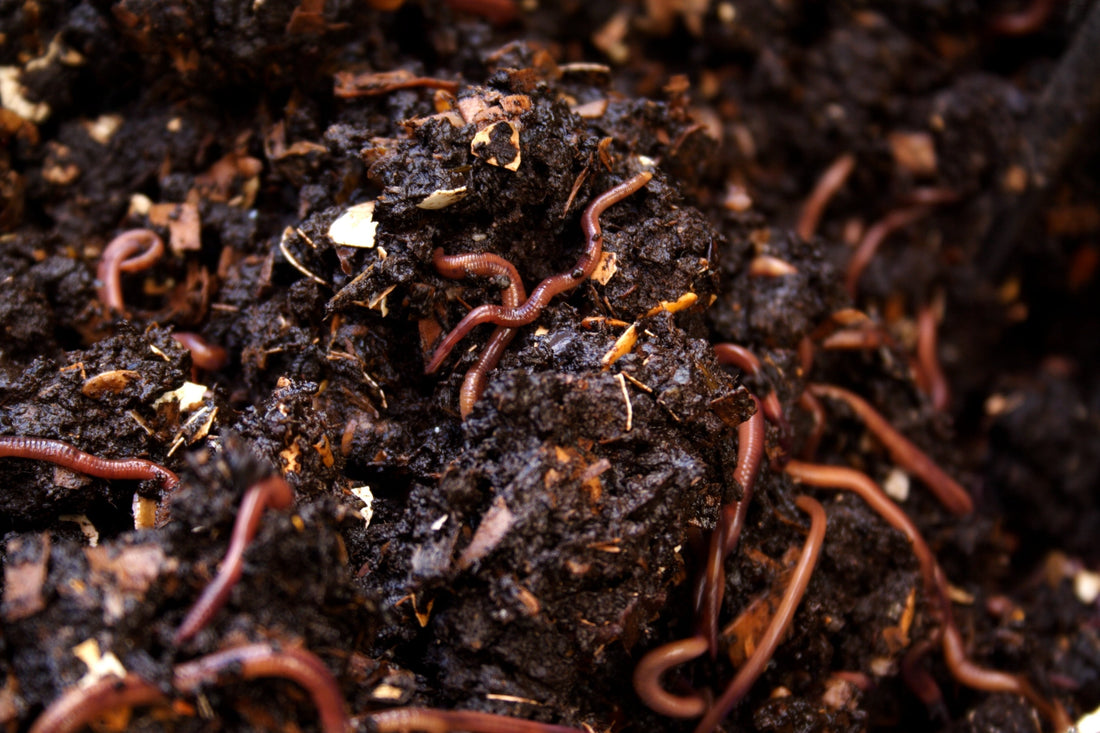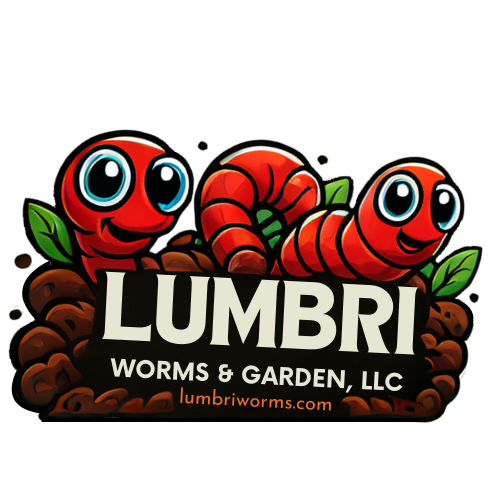
What Should You Feed Your Compost Worms? - Lumbri Worms & Garden, LLC
Share
What Should You Feed Your Compost Worms?
The most important factor in feeding composting worms is ensuring they eat organic matter. Sticking to natural, decomposable food sources is the best way to keep your worm bin thriving. While worms can consume a variety of materials, they will flourish with certain foods more than others.
Organic waste such as vegetable and fruit scraps, pulverized eggshells, tea (bag and all), and coffee grounds provide an excellent diet for worms. Additionally, shredded newspaper, egg cartons, and cardboard can be added as a carbon source. Even human (and pet) hair and nails are suitable for worm bins.
Some of their favorite foods include melons, avocado, banana peels, and other sweet fruits. Since worms primarily consume microbes that break down organic matter, fostering microbial activity in the worm bin enhances their diet.
Common Organic Waste for Compost Worms:
Fruit and vegetable scraps: peels, rinds, and cores (including melon rinds, banana peels, pumpkin, and corn cobs)
Pulverized eggshells or finely crushed oyster shells
Shredded newspapers, egg cartons, and cardboard
Coffee grounds and filters
Tea bags and loose tea leaves
Aged manure from herbivorous animals (rabbits, horses, cows, llamas, etc.)
Important: Avoid manure containing deworming medications, as they can harm worms.
A Sustainable Approach: Most items you would compost in a traditional bin can also go into a worm bin. A balance between "greens" (nitrogen-rich materials like food scraps, plant cuttings, and grass clippings) and "browns" (carbon-based items such as shredded cardboard and newspaper) is essential for a healthy worm farm.
What Not to Feed Your Compost Worms & Why
Certain foods can be harmful to worms or disrupt the balance of your bin. Avoid the following:
Citrus fruits (oranges, lemons, limes, grapefruit, pineapple): Contains limonene, which is toxic to worms in large quantities, and high acidity can slow decomposition.
Onions, garlic, leeks, and other spicy foods: These can irritate worms and create an unfavorable environment.
Tomatoes and potatoes: While worms can consume these, seeds may sprout, leading to unwanted plant growth in the bin.
Meat, dairy, salty, or oily foods: These can create foul odors and attract pests such as flies and rodents.
Pet waste (dog and cat feces): Contains pathogens that are harmful to worms and humans.
Avoiding these foods ensures a stable, odor-free, and thriving worm composting system.
How to Feed Your Compost Worms Correctly
For a healthy worm bin, follow these feeding guidelines:
Cut larger food scraps into smaller pieces to accelerate decomposition.
Depending on the size of the bin, feed worms between once a week to every two days, using about a cup (240 ml) of organic waste per feeding.
Keep a journal to track feeding habits, consumption rates, and adjustments needed.
If the bin starts to smell, it may indicate overfeeding. Reduce feedings and ensure food is buried under the bedding (about 3-4 inches deep) to prevent pests.
Rotating feeding spots helps prevent compaction, encourages even decomposition, and maintains a balanced environment.
Signs of Proper Feeding:
Healthy, active worms that reproduce regularly.
No strong odors in the bin.
Waste being consistently consumed and broken down.
Can You Overfeed Your Worms? Yes! Overfeeding can lead to excessive moisture, odors, and potential pest issues. Always feed based on consumption rates and ensure excess food isn’t piling up. Using shredded cardboard or paper as a base under food waste and as a cover can help maintain balance.
Should You Feed Your Worms Manure?
Aged manure from herbivorous animals can be a beneficial addition to the worm bin. It provides:
Nutrient-rich content – High in nitrogen, phosphorus, and potassium, supporting worm growth and microbial activity.
Microbial diversity – Enhances decomposition by introducing beneficial microorganisms.
Moisture retention – Helps maintain optimal hydration levels in the bin.
pH balance – Aged manure stabilizes pH levels, preventing acidity issues.
Avoid the following types of manure:
Fresh manure (too high in ammonia and heat-producing bacteria)
Manure from carnivorous animals (dogs, cats)
Manure with chemical residues (antibiotics, dewormers)
When to Feed Your Worms
Understanding the right feeding times ensures a productive vermicomposting system. Consider these factors:
Observation: Add food when previous scraps are nearly consumed.
Microbial activity: More microbes mean faster decomposition.
Avoid overfeeding: Too much food leads to odors and imbalance.
Seasonal conditions: Warmer weather accelerates decomposition, requiring more frequent feeding.
A worm bin thermometer can help monitor conditions and determine ideal feeding schedules.
Why Rotate Feeding Spots?
Shifting feeding locations within the bin provides several benefits:
Prevents compaction: Ensures airflow and avoids anaerobic conditions.
Balances decomposition: Even distribution of waste enhances efficiency.
Reduces odors: Avoids excessive moisture buildup in one area.
Encourages movement: Worms aerate the bin naturally as they search for food.
Optimizes nutrient absorption: Ensures all areas receive adequate feeding and microbial activity.
Why Is Oyster Shell Flour Important?
Adding oyster shell flour benefits worms by:
Providing calcium: Essential for worm reproduction and overall health.
Regulating pH: Helps neutralize acidity in the bin.
Aiding digestion: Acts as grit, allowing worms to break down food efficiently.
Enhancing soil structure: Improves worm castings and promotes plant growth.
Protecting eggshell integrity: Supports ongoing worm population growth.
Why Feed Worms Microbial Food?
Since worms primarily consume microbes rather than food scraps themselves, fostering microbial activity is crucial. Microbial-rich food enhances:
Nutritional availability: Provides essential nutrients for worms.
Efficient decomposition: Breaks down waste more effectively.
Ecosystem balance: Maintains a healthy bin environment.
Worm health: Supports digestion and overall vitality.
Optimal composting conditions: Ensures moisture, pH, and microbial levels remain stable.
By focusing on microbial activity, your worm bin will yield nutrient-rich castings, benefiting your plants and garden.
By following these guidelines, you can ensure your composting worms remain healthy, active, and efficient at converting organic waste into rich, beneficial worm castings!
